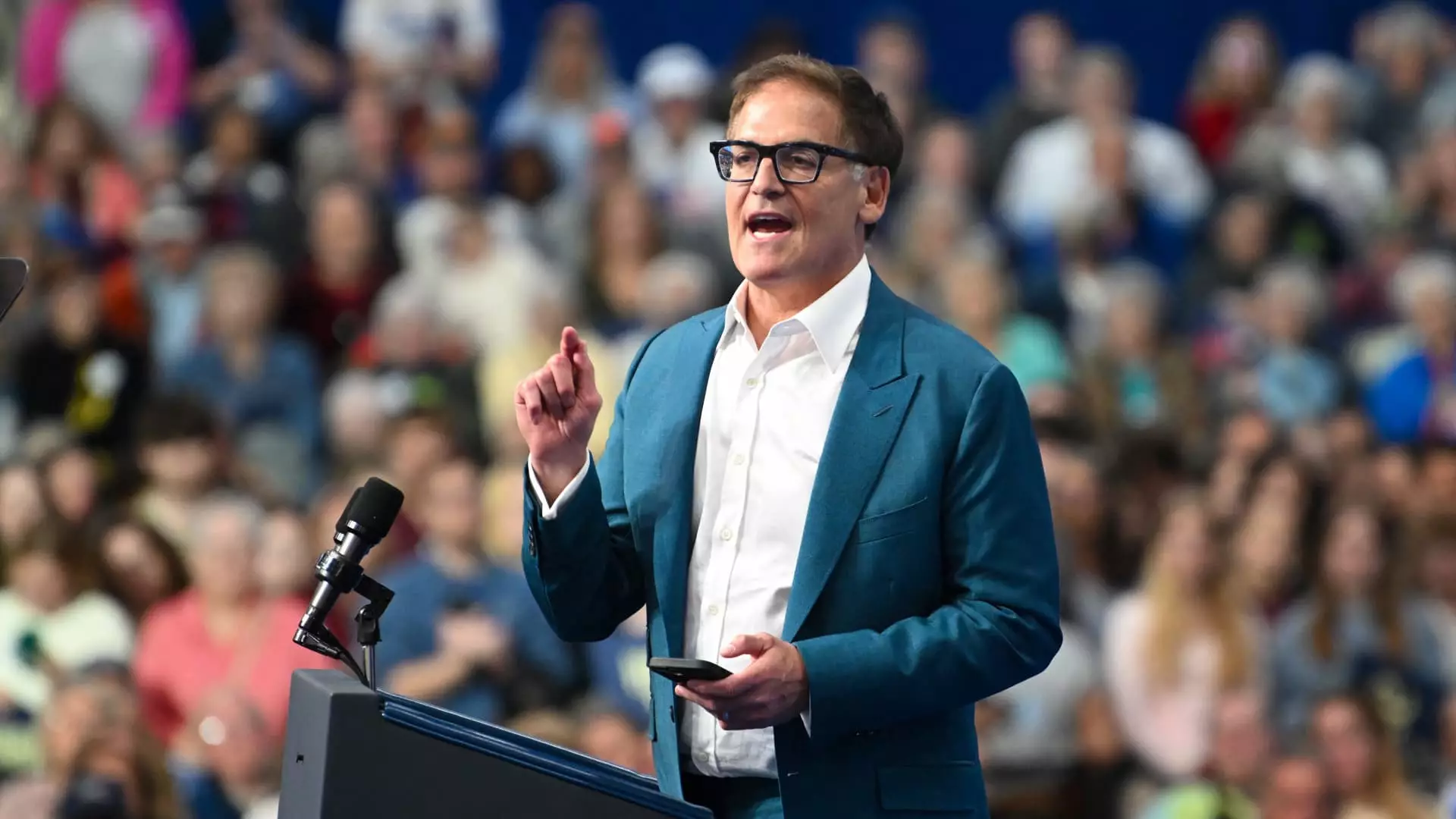In a recent interview, billionaire investor Mark Cuban made it clear that despite his active support for Vice President Kamala Harris, a position in her administration is not on his agenda. Cuban emphasized his disinterest in a political career, asserting, “I have no interest in being a politician of any type” during a segment on ABC’s “This Week.” This declaration serves as a striking contrast to earlier comments where he appeared to entertain the idea of assuming a governmental position, particularly eyeing the role of Securities and Exchange Commission (SEC) Chair. His distancing from the idea may be an attempt to clarify his role as a campaign surrogate rather than a potential political appointee.
Throughout his entrepreneurial journey, Cuban has symbolized the archetype of a disruptor. His reluctance to embrace the traditional realm of politics reveals an individual who values his independence and the dynamism inherent in entrepreneurship. Cuban has not only criticized various government officials but also raised his voice during campaigning, advocating for Harris without seeking personal political gain. In the past, he suggested a replacement for SEC Chair Gary Gensler, indicating a willingness to influence regulatory frameworks but simultaneously expressing no desire to assume personal responsibility for such roles.
Although Cuban has yet to financially support Harris’s campaign, his public engagements and dialogue in support of her candidacy have increased. Engagements on media platforms and rallies have highlighted his desire to leverage his influence as a business mogul to steer the narrative in favor of the Democratic nominee. Cuban’s involvement indicates a strategy not just of financial backing but rather a commitment to reshaping policy conversations, particularly around corporate regulation and antitrust issues, reflecting his own entrepreneurial ethos.
Policy Perspectives for a Hypothetical Administration
Cuban’s perspectives on policy tweaks during his support for Harris extend to suggesting the needs for significant personnel changes within key regulatory bodies. His critical stance on officials like Federal Trade Commission Chair Lina Khan, with his suggestion that she should be removed if Harris takes office, underscores an agenda emphasizing major changes in how big businesses are regulated. Cuban’s assertion that Khan is “hurting more than she’s helping” should be seen as indicative of his broader vision for a Harris administration that prioritizes practical outcomes over stringent regulatory overreach.
As Cuban continues to champion entrepreneurial initiatives, his desire to remain an industry disruptor resonates strongly, aligning with his disdain for political constraints. His ability to engage in political discourse while maintaining a distance from formal politics exemplifies a contemporary approach to influencing the political landscape from within the business community. By choosing to occupy the periphery rather than the center of political power, Cuban illuminates a path for other entrepreneurs who wish to contribute to governance without succumbing to its many trappings. Ultimately, his journey reflects an embrace of the entrepreneurial spirit, balancing influence, pragmatism, and a clear disinterest in escalating political ambitions.

Leave a Reply